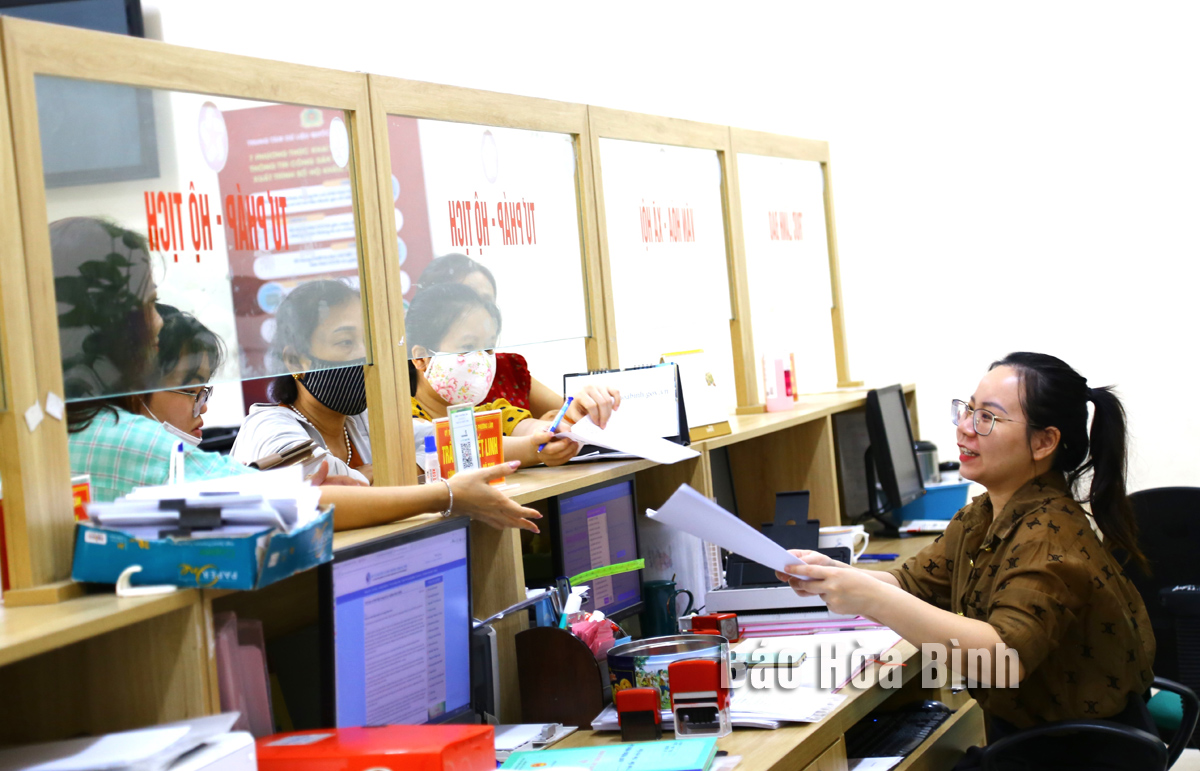
Administrative reform has been identified as a key priority in enhancing state governance, improving the business environment, and facilitating services for citizens and enterprises.

At the Phuong Lam Ward Public Administration Service Centre, Hoa Binh city.
In
recent years, Hoa Binh province has implemented a series of measures to
streamline administrative procedures, achieving notable progress.
Since
the beginning of the year, the province has issued 36 administrative decisions,
standardised 522 internal procedures, and simplified 132 across multiple
sectors.
Decentralization has streamlined processes, with local agencies taking on more responsibilities.
Transparency has improved, with all procedures now accessible online.
Hoa
Binh has also connected its administrative systems with national databases,
including the National Population Database and platforms operated by ministries
such as Health, Construction, and Public Security.
Despite
progress, Hoa Binh province faces challenges such as processing delays, slow
procedural updates, and incomplete digital integration.
To
address these issues, the province is expanding "one-stop-shop” services,
accelerating digitalization with AI, scaling up pilot initiatives, and
simplifying complex procedures.
Efforts
also include enhancing accountability and feedback mechanisms to improve
efficiency and public satisfaction, supporting business growth and
socio-economic development.
The Standing Board of the Hoa Binh provincial Party Committee has agreed in principle on a proposal by the Standing Board of the Party Committee of Hoa Binh city to gather feedback on the city’s 1:2000 zoning plan, which forms part of its broader urban development strategy.
Hoa Binh province has made notable progress in public administration reform and digital government development, with the satisfaction index among citizens and businesses reaching over 84%, according to recent government evaluations.
Thanks to great efforts by local authorities in recent times, the governance and public administration performance of Mai Chau district has been significantly improved.
In the afternoon of June 6, the Party Committee, the People's Council, the People's Committee and the Fatherland Front of Lac Son district solemnly held a meeting to celebrate the 139th anniversary of the district's founding (1886–2025) and the 79th anniversary of the establishment of the district's Party Committee (1946–2025). There was the attendance of Mr. Bui Van Thang, the Vice Chairman of the Provincial People's Council; Mr. Quach Tat Liem, the Vice Chairman of the Provincial People's Committee; Ms. Dang Bich Ngoc, the Deputy Head of the National Assembly Delegation of the province; as well as the former leaders of the province and district through various periods, who are the natives of the district.
Implementing the Politburo’s Resolution No. 57-NQ/TW on breakthroughs in science – technology, innovation, and digital transformation is a golden opportunity for the northern mountainous province of Hoa Binh to renew growth model, improve competitive edge and shorten digital gap.
Resolution 57-NQ/TW, issued by the Politburo on December 22, 2024, identifies sci-tech, innovation, and digital transformation as strategic breakthroughs to build a developed and prosperous nation. In Hoa Binh province, this spirit is not just a slogan, it’s being put into action through concrete initiatives that form a "new development triangle”: digital citizenship, digital economy, and digital administration.



